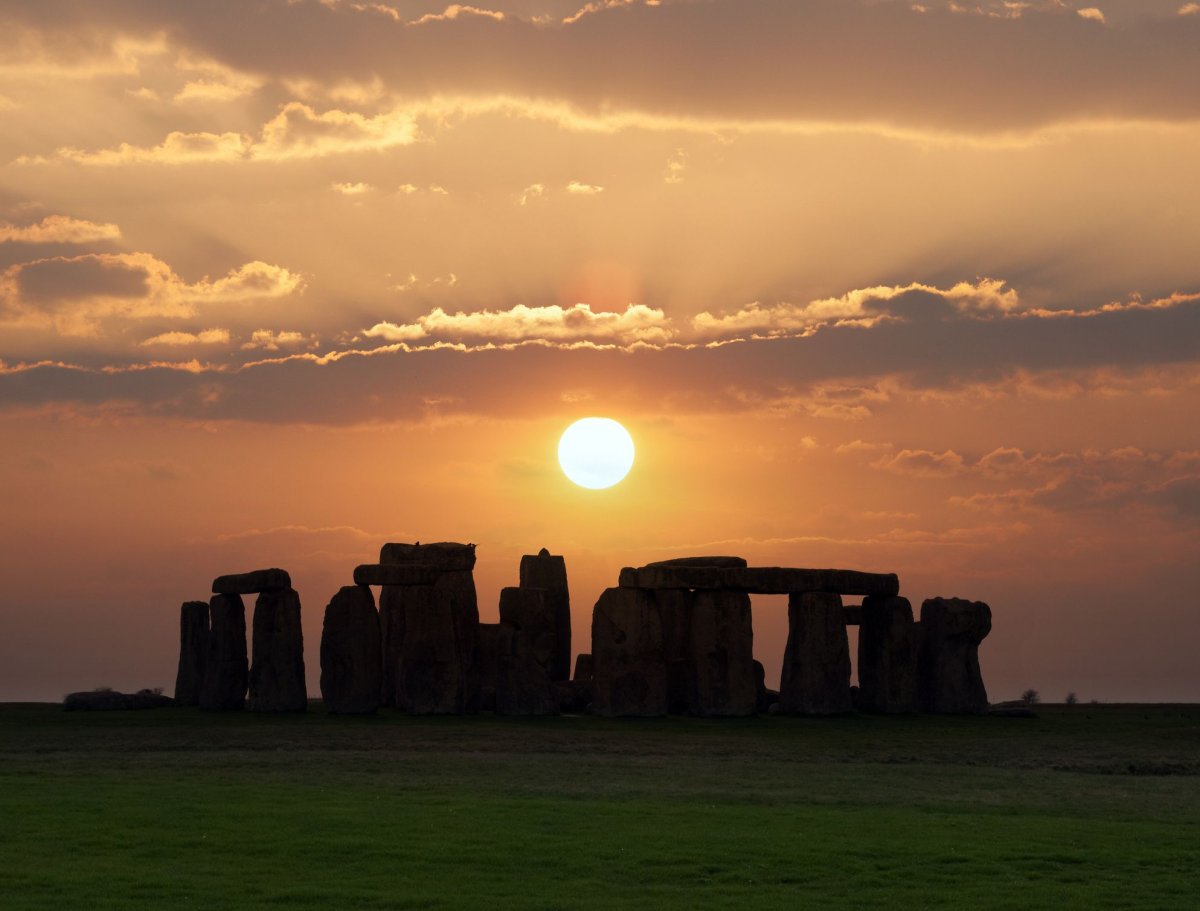The winter solstice is an astrological phenomenon marking the shortest day of the year, or the day with the fewest daylight hours and the longest night. In the Northern hemisphere, this occurs annually between December 20 and 23 (in the Southern hemisphere it takes place in June.)
The December solstice is technically the moment when the Earth's North Pole is tilted furthest away from the Sun—which this year will take place at 5:22 p.m. EST on December 21 (it happens at the same moment wherever you are in the world, but local times will differ.) However, the term is used by most people to refer to the day during which this moment occurs.
Read more: When are the December holidays happening this year?
"Since the Earth is tilted on its axis, the arc the Sun moves through during the day will rise and fall across the year as the Earth's pole points either towards or away from the Sun," according to Royal Museums Greenwich, home to the U.K. Royal Observatory—which is best known for the fact that the prime meridian runs through it.
"The winter solstice occurs at the minimum point for the northern hemisphere, when the Sun is lowest in the sky. At this time, the Earth's North Pole is pointing away from the Sun (which is why it is so much colder in the Northern hemisphere). For people living in the Southern hemisphere, the South Pole is pointing towards the Sun, making it summertime 'down-under.'"
In astronomical terms, the December 21 solstice marks the end of autumn in the northern hemisphere and the start of winter, which will technically end on March 20, 2019. It is one of the four days when a new season starts, alongside the spring equinox, the summer solstice and the fall equinox. However, in meteorological terms, winter begins on December 1 and ends on February 28. This is because the meteorological definition takes into account annual temperature cycles.
The solstice is important because it marks the beginning of the days getting longer (a trend that will continue until the spring equinox). As such, it has been celebrated by cultures throughout human history.
The December solstice occurs far more frequently on the 21 or 22 than it does on the 20 or 23. In fact, the last December 23 solstice took place in 1903 and won't happen again until 2303. Similarly, a December 20 solstice is very rare, with the next one not set to take place until 2080.
The reason that the date of the solstices varies can be explained by the differences between the Gregorian calendar and the "tropical year."
"The Gregorian calendar, which is used in most western countries, has 365 days in a common year and 366 days in a leap year," according to timeanddate.com.
"However, the tropical year, which is the length of time the sun takes to return to the same position in the seasons cycle (as seen from Earth,) is different to the calendar year. The tropical year is approximately 365.242199 days but varies from year to year because of the influence of other planets. The exact orbital and daily rotational motion of the Earth, such as the "wobble" in the Earth's axis, also contributes to the changing solstice dates."
The headline of this article has been updated to say it is the shortest day of the year rather than the longest.

Uncommon Knowledge
Newsweek is committed to challenging conventional wisdom and finding connections in the search for common ground.
Newsweek is committed to challenging conventional wisdom and finding connections in the search for common ground.
About the writer
Aristos is a Newsweek science reporter with the London, U.K., bureau. He reports on science and health topics, including; animal, ... Read more
To read how Newsweek uses AI as a newsroom tool, Click here.








